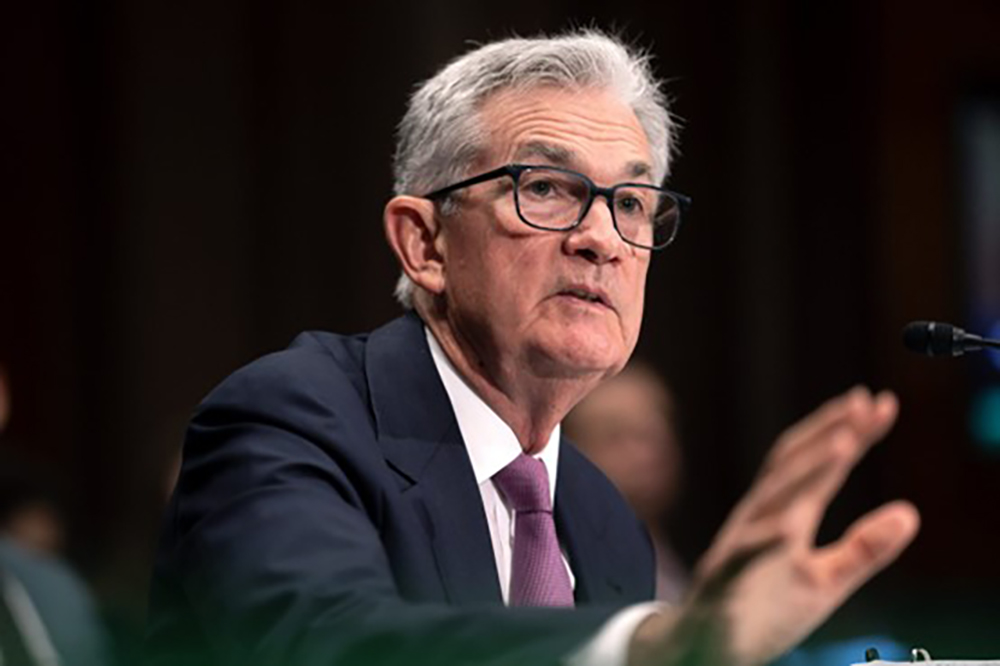
In recent years, the global economic landscape has continued to evolve in a complex and ever-changing international environment, and the US economy, as one of the indicators of the global economy, is gradually showing an unprecedented "big wait" pattern. This phenomenon has not only attracted widespread attention from market participants, but also plunged many investors into deep confusion and perplexity.
The current US economy is facing policy uncertainties from multiple aspects, including the timing of the withdrawal of fiscal stimulus policies, the future direction of monetary policy (especially when and how the Federal Reserve will adjust interest rates), and repeated changes in international trade policies. These uncertainties make it difficult for businesses and individuals to form clear expectations for future economic prospects, thereby suppressing investment and consumption activities.
Firstly, in response to the downward pressure on the economy and the impact of the pandemic, the US government and Federal Reserve have implemented a series of fiscal and monetary policy measures. However, due to the time lag between policy formulation, implementation, and effectiveness, and the difficulty in immediately demonstrating the synergistic effects between different policies, the market has fallen into a long "waiting" state.
Secondly, as the global economy gradually recovers and supply chain bottlenecks persist, inflationary pressures have significantly increased, becoming a major challenge facing the current US economy. The increase in economic uncertainty and the delay in policy effectiveness have seriously undermined the confidence of market participants. Investors' expectations for future economic growth have become pessimistic, and they are also skeptical about the effectiveness of policies. This lack of confidence further prolongs the duration of the big wait pattern.
It is worth mentioning that due to the uncertain economic outlook, market participants have increased their divergence in expectations for the future, leading to a significant increase in volatility in financial markets such as the stock and bond markets. Investors find it difficult to form a consistent investment strategy, and market signals are chaotic, making it difficult for investors to grasp market trends.
There are three main reasons that confuse investors. Firstly, the global economic situation is complex and ever-changing, with various economic data and policy statements constantly emerging. Investors often find it difficult to fully and accurately grasp market dynamics, leading to confusion. Secondly, in the face of economic uncertainty, investors tend to have conservative risk preferences, making it difficult to determine appropriate asset allocation strategies and worrying that any investment decision may face unpredictable risks. Thirdly, while investors pursue long-term returns, they also have to face the challenges of short-term market fluctuations. How to find a balance between the two has become a key issue that troubles investors.
In response to this situation, investors should strengthen their attention to global economic, political, and market dynamics, enhance their information analysis and research capabilities, in order to more accurately grasp the pulse of the market. It is also necessary to diversify investment portfolios, diversify investment risks, and reduce the impact of fluctuations in a single market or asset class on the overall investment portfolio. In addition, in the face of economic uncertainty, investors should maintain flexible investment strategies and adjust their position structure in a timely manner. Meanwhile, maintain sufficient patience to avoid making impulsive decisions due to short-term fluctuations.
In summary, the fact that the US economy is in a "big wait" mode is a microcosm of the complexity of the current global economic environment. For investors, this is both a challenge and an opportunity. By strengthening information analysis, building diversified investment portfolios, and maintaining flexibility and patience, investors are expected to find their way forward in the fog and achieve steady asset appreciation.

According to a recent report by Rich Asplund, a columnist for Barchart, the global sugar market is currently experiencing a complex and profound supply-demand game.
According to a recent report by Rich Asplund, a columnist f…
On January 13th local time, the three major US stock indice…
Recently, the 2026 edition of the MIT Technology Review lis…
On January 15, 2026, the US military announced the seizure …
At the 2026 J.P. Morgan Healthcare Conference, a joint anno…
For much of 2025, the market was rethinking whether the dol…